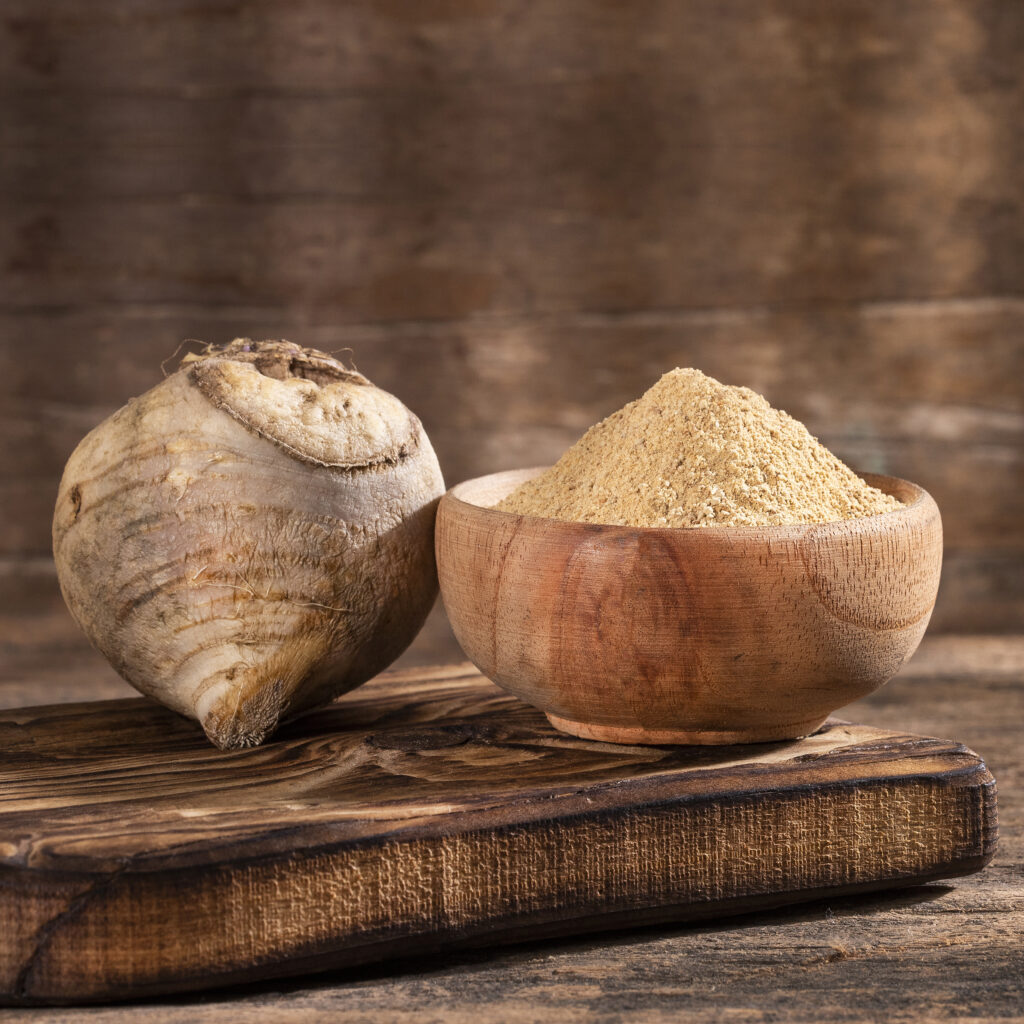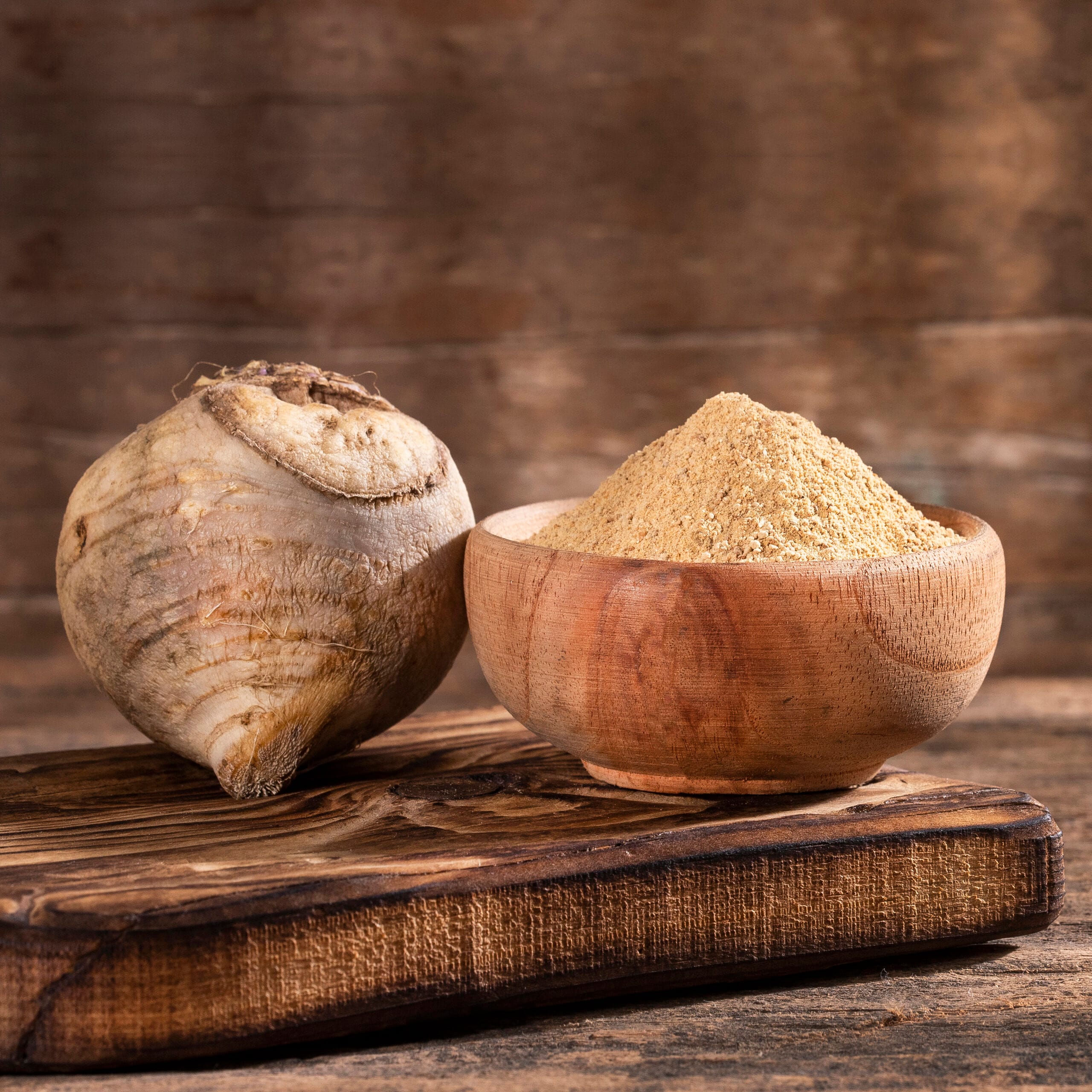
Introduction and Key Maca Menopause Benefits :
Maca, a Peruvian root, is widely recognized for its energizing, libido-enhancing, and adaptogenic properties. Traditionally used to boost stamina, sexual function, and overall well-being, research suggests that maca may support sexual health, mental energy, and mood. In menopausal women, maca has shown promise in reducing symptoms like hot flashes, anxiety, and sexual dysfunction.
Top Health Benefits and Uses:
1. Hormonal Balance and Menopause Support:
Maca may help relieve menopause-related symptoms, especially in women during and after menopause. Studies show it can positively affect libido and sexual function in both men and women without significantly altering hormone levels like testosterone. In menopausal women, it appears to ease symptoms such as hot flashes and mood swings, possibly due to its adaptogenic effects that support hormonal balance and stress regulation.
2. Sexual Function and Libido:
Maca is linked to increased libido in both men and women. Several clinical trials indicate it may enhance sexual desire, likely due to its effects on mood and energy levels rather than direct hormone modulation. Randomized controlled trials have shown maca improves sexual function and desire, with some studies specifically noting benefits for menopausal women and those with mild erectile dysfunction.
3. Enhanced Energy and Physical Performance:
Athletes and active individuals may benefit from maca’s energizing effects. Research on male cyclists and other athletes indicates improvements in endurance and stamina, likely attributed to enhanced mitochondrial function and overall energy levels. Maca’s influence on perceived energy makes it a popular supplement for boosting physical performance and recovery.
4. Neuroprotective Properties:
Maca has antioxidant and anti-inflammatory actions that may protect brain health. Animal studies suggest maca may improve memory, motor coordination, and cognitive function. These effects are thought to stem from enhanced mitochondrial activity and protection of neurons from oxidative stress. However, more human studies are needed to confirm maca’s neuroprotective benefits.
5. Mood and Anxiety Support:
Maca may reduce feelings of anxiety and depression, particularly in menopausal women. Some studies have found it beneficial for mood improvement and reduced psychological distress, likely due to its adaptogenic effects that help the body manage stress.
6. Skin Protection and Wound Healing: Animal research suggests maca may protect against UV damage and aid in wound healing due to its antioxidant compounds. These findings point to maca as a potential skin health supplement, though human trials are still needed.
Dosage and Safety:
Standard doses range from 1.5 to 3 grams per day, though specific recommendations depend on individual health goals. Maca is generally considered safe for most people, with mild side effects like digestive discomfort being rare. However, individuals with thyroid issues should be cautious, as maca contains goitrogens that may interfere with thyroid function in large amounts.
Research and References:
For more detailed information and scientific studies on maca’s health benefits and mechanisms, consult the following resources:
– RSC Publishing on maca’s neuroprotective effects
– The Botanical Institute on maca’s benefits and safety
These studies suggest maca can be an effective supplement for individuals seeking natural support for energy, sexual health, mood balance, and menopause-related symptoms.
However, larger-scale human trials are needed to fully understand its mechanisms and long-term effects. Maca is also easy to digest and can be combined with Rhodiola, Ashwagandha, and Ginseng for enhanced energy support.

